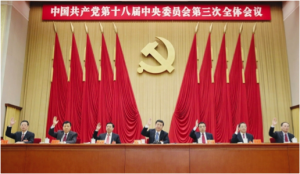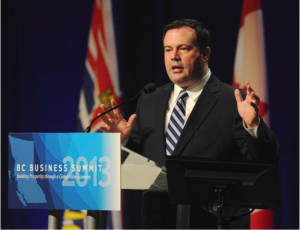 On Tuesday, November 12, the Chinese leaders finished the third plenary session of the 18th Central Committee with a promise to grant private companies an more important role in the state’s economy. However, although the leaders were under pressure of providing the country with a more effective economic model, no dramatic reform was mentioned in the plenary session.
On Tuesday, November 12, the Chinese leaders finished the third plenary session of the 18th Central Committee with a promise to grant private companies an more important role in the state’s economy. However, although the leaders were under pressure of providing the country with a more effective economic model, no dramatic reform was mentioned in the plenary session.
I am rather disappointed with the government’s announcement. Because the Chinese economy had been growing rapidly in the past thirty years and had slowed down in the recent years, a reform was desperately needed in order for China to maintain a constant economical growth. However, the leaders did not give a definite resolution to the concurrent problem; only a vague suggestion was provided. In my opinion, to maintain a high economic growth rate, a new, effective economical reform should be implemented as soon as possible because the state-centered model is no longer suitable for China’s current economical situation.
http://www.vancouversun.com/Business/asia-pacific/China+Communist+rulers+pays+service+market+while/9155923/story.html


 by Canadian employers skills training” (the Vancouver Sun 2013).
by Canadian employers skills training” (the Vancouver Sun 2013).
